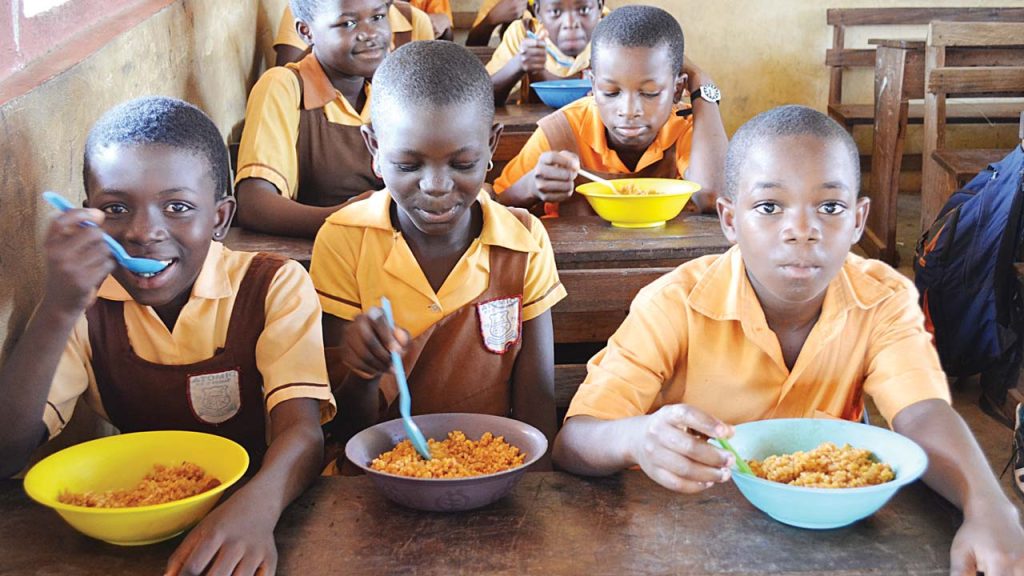The Federal Government of Nigeria is working to expand its National Home-Grown School Feeding Programme (NHGSFP) to reach 50 million primary school pupils by 2026. Dr. Aderemi Adebowale, National Programme Manager of the National Social Investment Programme Agency (NSIPA), disclosed this in an interview. The programme aims to include early years, specifically primary 1 to 3 and primary 4 to 6, as well as out-of-school children, in a phased integration.
The goal is to provide a nutritious meal to these children, with a target cost of N500 to N1,000 per child. To achieve this, the agency is forming alliances with small-holder farmers, aggregators, and supply chain developers to control prices. By negotiating prices with suppliers, agri-vendors, and farmers, the agency aims to arrive at a reasonable cost per plate.
The NHGSFP is part of the National Social Investment Programme Agency, which was introduced to mark President Bola Tinubu’s second year in office. In May 2025, the Federal Government inaugurated the Alternate Education and Renewed Hope National Home-Grown School Feeding Project, aiming to provide meals for 20 million out-of-school and underserved children by 2026. This initiative is being implemented through the Renewed Hope National Home-Grown School Feeding Programme (RH-NHGSFP) in partnership with relevant agencies.
The expansion of the NHGSFP is significant, as it has the potential to improve the nutrition and educational outcomes of millions of Nigerian children. By providing meals to these children, the government hopes to increase enrollment and attendance rates, particularly among disadvantaged groups. The success of this programme will depend on effective implementation, including the ability to control costs and ensure the quality of meals provided.
The Federal Government’s efforts to expand the NHGSFP are a step towards addressing the challenges of hunger and malnutrition in Nigeria. With a focus on nutrition and education, this programme has the potential to make a positive impact on the lives of millions of children and contribute to the country’s development goals. As the programme moves forward, it will be important to monitor its progress and address any challenges that arise to ensure its success.
